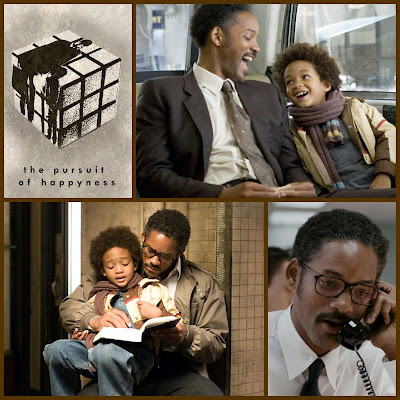'LEGION' CHAPTER 5 - REVIEW!
★★★★☆
David Haller is not himself. Since the first episode of Legion, it’s been a recurring problem: If we are the sum of our memories, but our memories are false, are we then not who we think we are? But that’s a question each of us has to ask ourselves, an issue that continually forces us to grapple with our past to make sense of our present. For David, the fear was always that his schizophrenia caused him to see and act other than he would, were he healthy. But now, even that would be a blessing of sorts—an illness is not a parasite. And David has a parasite, a devil with yellow eyes, one that’s been with him since he was a boy. It’s taken many different forms—his imaginary dog King, the World’s Angriest Boy, his drug-addled friend Lenny, sorry Benny, as much as we can accept that Lenny was actually a person unto herself at any point—but it’s been with him for 30 years, growing alongside him, steering him down certain paths when possible, and now, it wants more.
David Haller is not himself. Since the first episode of Legion, it’s been a recurring problem: If we are the sum of our memories, but our memories are false, are we then not who we think we are? But that’s a question each of us has to ask ourselves, an issue that continually forces us to grapple with our past to make sense of our present. For David, the fear was always that his schizophrenia caused him to see and act other than he would, were he healthy. But now, even that would be a blessing of sorts—an illness is not a parasite. And David has a parasite, a devil with yellow eyes, one that’s been with him since he was a boy. It’s taken many different forms—his imaginary dog King, the World’s Angriest Boy, his drug-addled friend Lenny, sorry Benny, as much as we can accept that Lenny was actually a person unto herself at any point—but it’s been with him for 30 years, growing alongside him, steering him down certain paths when possible, and now, it wants more.
So David has returned home. Not just his childhood home, the place where it all started, as Syd points out in the wake of the devastation at Division 3. No, the Eye (disguised as Rudy) shoots at David, but when Syd tries to whisk them to safety by having David transport them to the White Room, the extent of David’s loss of self becomes immediately terrifying. In this room, this place of David’s making, he’s no longer in control. The devil with yellow eyes appears, stalking Syd, and unlike her last encounter with him on the astral plane, this time there’s nowhere to run. The scene that follows is short, and startling in its immediacy, but it also feels like a last-ditch version of home for the trouble telepath. Right before his parasite can attack Syd, David screams, and in that scream, there’s a cry of frustration, and more importantly, of longing—somewhere away from all of this, where none of the current troubles even existed. Suddenly, they’re all in group therapy at Clockworks, a place where David felt secure, even if it was a medically induced security. It‘s by no means clear this is the explanation for that last-minute twist, but for David, someone who never found home all that homey, it’s a situation of ease and comfort. Even the sound of a steady ping-pong ball rhythm is assuring.
What is home, if not a place where you can temporarily put your worries aside and find warmth and security in someone or something? It’s the same reason Syd is so willing to be seduced by the White Room, no matter Melanie’s warnings about Oliver losing himself in the astral plane. Here’s a place where she can finally touch and be touched without fear of danger or shock. Sydney can kiss her boyfriend, enjoy the sensation of skin on skin, for maybe the first time in her life. That’s a powerful incentive to ignore the little signs of trouble, from David’s newfound confidence—”I’m the magic man,” he tells her the first time they arrive there, his smile and gaze remaining fixed for just a little too long to seem entirely his own—to his cavalier attitude about the illusory nature of it all. “Real, fake, it’s all the same,” David says, without a hint of uncertainty. For a man who was forever troubled by not knowing what was real and what wasn’t, such a pivot is awfully unlike the gentle and insecure man Syd loves. But it results in her getting the thing she’s wanted most, and as much as we all like to believe we could be Jean-Luc Picard in Star Trek: Generations, refusing the life we’ve always dreamed of for the sake of doing the right thing, most of us are Sydneys. We suffer—most of the time, in fact—and making small adjustments in our worldview to allow us to receive some measure of joy isn’t a weakness. It’s a sign of humanity.
The rescue of David’s sister is the final act that allows the parasite to completely control David in a way we hadn’t seen before. As Cary notices when studying the MRI footage, there’s literally a separate entity inside David, and Lenny is the form of that parasite, at least in the eyes of David and his companions, most of the time. At the end of “Chapter 4” there’s a brief moment where the eyes of David, Lenny, and the devil overlap, and when David agrees to go rescue Amy from Division 3 by himself, he’s not only accompanied by his parasite: It seizes control. After David and Amy retreat to their childhood home, it’s unclear what motive the parasite has for bringing them there. Does David want to know the secret of his birth, or does the devil? Dun dun dun... There are so many times when David seems right on the surface, wanting to connect with his sister. Yet everything leading up to it felt like sadism, an act of manipulative cruelty on the part of Lenny. The fact that he was adopted wasn’t a secret David was hoping for, so it’s uncertain what purpose it serves in the devil’s plan.
But there’s a difference between truth and facts. The fact of learning your birth father and mother are other people than the ones who raised you doesn’t alter the truth of your family. Amy loves her brother, and there was no more malice in her choice to not tell him earlier than there was in her self-deluding embrace of David as being mentally ill. As with many inexplicable facets of life, it made more sense than the alternative. Plus, it gave reassurance to both of them at a time when they were young and none of these powers made sense. Just ask Syd: Finding solace in a small self-deception is humane, not spiteful. Amy is no parasite, rewriting David’s memories to hide its existence. She wanted him to have access to her love, and not feel like the bond between them is any less potent due to the fact of his real parentage. Nothing could be more true than that.
Where Sydney sees David, everyone else sees power. Melanie sees it as a hopeful thing, a chance for her to bring her beloved Oliver back from the astral plane, and maybe win a war while they’re at it. She, like Syd, is willing to overlook some of the dangers posed, because her hope is based on being able to keep David tethered to the reality in which the rest of them reside. Ptonomy sees the threat: Everyone around him is diving headlong into situations they should either delay or avoid, simply because their desire for David runs roughshod over other considerations. He doesn’t see David as a friend yet, so much as a risk. Even Division 3 only saw the man, not the parasite inside him. “It wears a human face,” the older head of the agency tells Melanie, at the end of that chilling trip through the devastation wrought by David while possessed by the yellow-eyed devil. He and his team could only see a need for control.
These are all dreams of a sort. Everyone in Legion believes in someone or something for different reasons, but they’re all driven by that same hope, of finding what they want to see. It’s the meaning of “The Rainbow Connection”: These illusions may not be technically real, but by virtue of our desire to believe, we give weight and meaning to them, which is reality of a different kind. David and Syd are dreamers, chasing that illusory rainbow because they know it motivates them to something more, something better. Those illusions have power behind them, or else the devil wouldn’t be so put out by them. “You people started putting all these ideas in his head,” Lenny spits at Syd, while violently kissing an immobile David. Those ideas gave David hope and empowerment. If they also provoked a real danger from the devil, well, that’s a fight worth having. Because, as Kerry Loudermilk can tell you, there’s always a fight.







Comments
Post a Comment